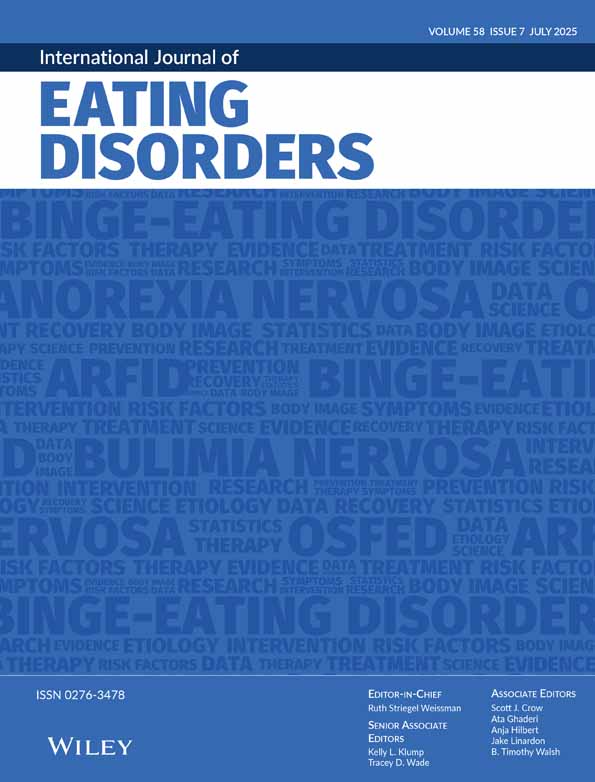Effect of social desirability on adolescent girls' responses to an eating disorders prevention program
Abstract
Objective
The current study examined whether a social desirability response bias is a source of measurement error in prevention research.
Method
Six hundred and seventy-seven female students in Grade 7 (n = 345) and Grade 8 (n = 332) were divided into either an intervention condition, in which participants watched a videotape promoting body acceptance and discouraging dieting and then discussed issues related to the video, or a control condition. Questionnaires were completed at baseline, postintervention, and at 1-month follow-up.
Results
Social desirability scores were correlated at a low but significant level with baseline body dissatisfaction, drive for thinness, bulimic tendencies, intention to diet, and size discrepancy for intervention participants. Social desirability did not correlate significantly with change over time in the outcome measures.
Discussion
The findings suggested that changes in girls' self-reports related to a prevention program were relatively free of social desirability response bias. © 2004 by Wiley Periodicals, Inc. Int J Eat Disord 35: 211–216, 2004.




